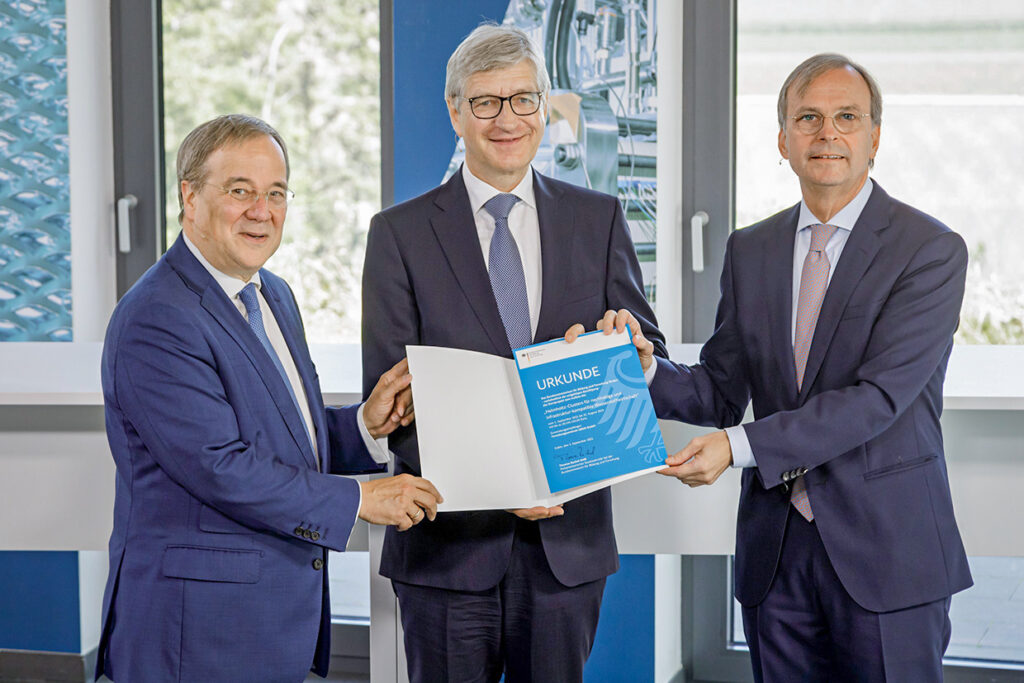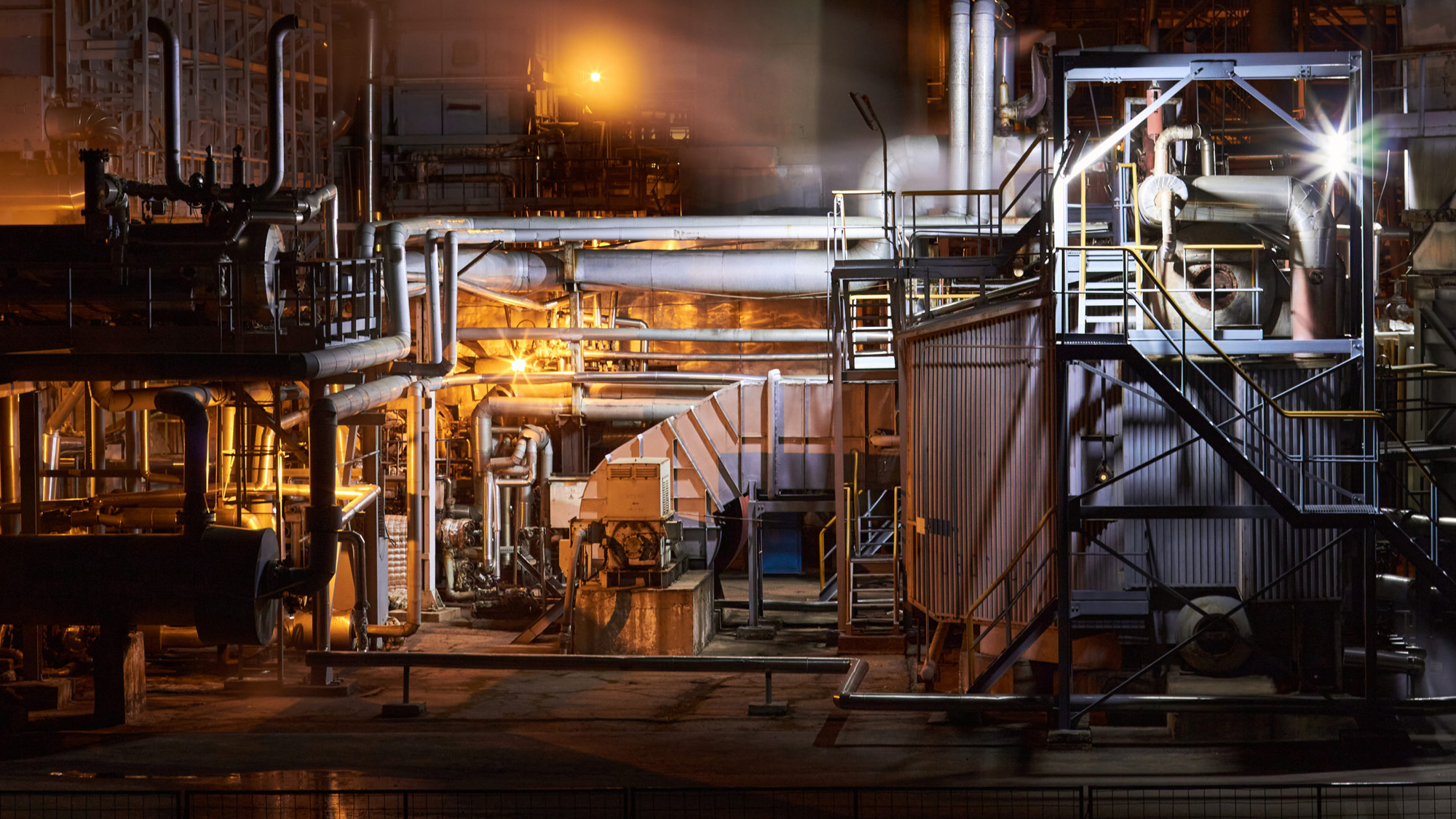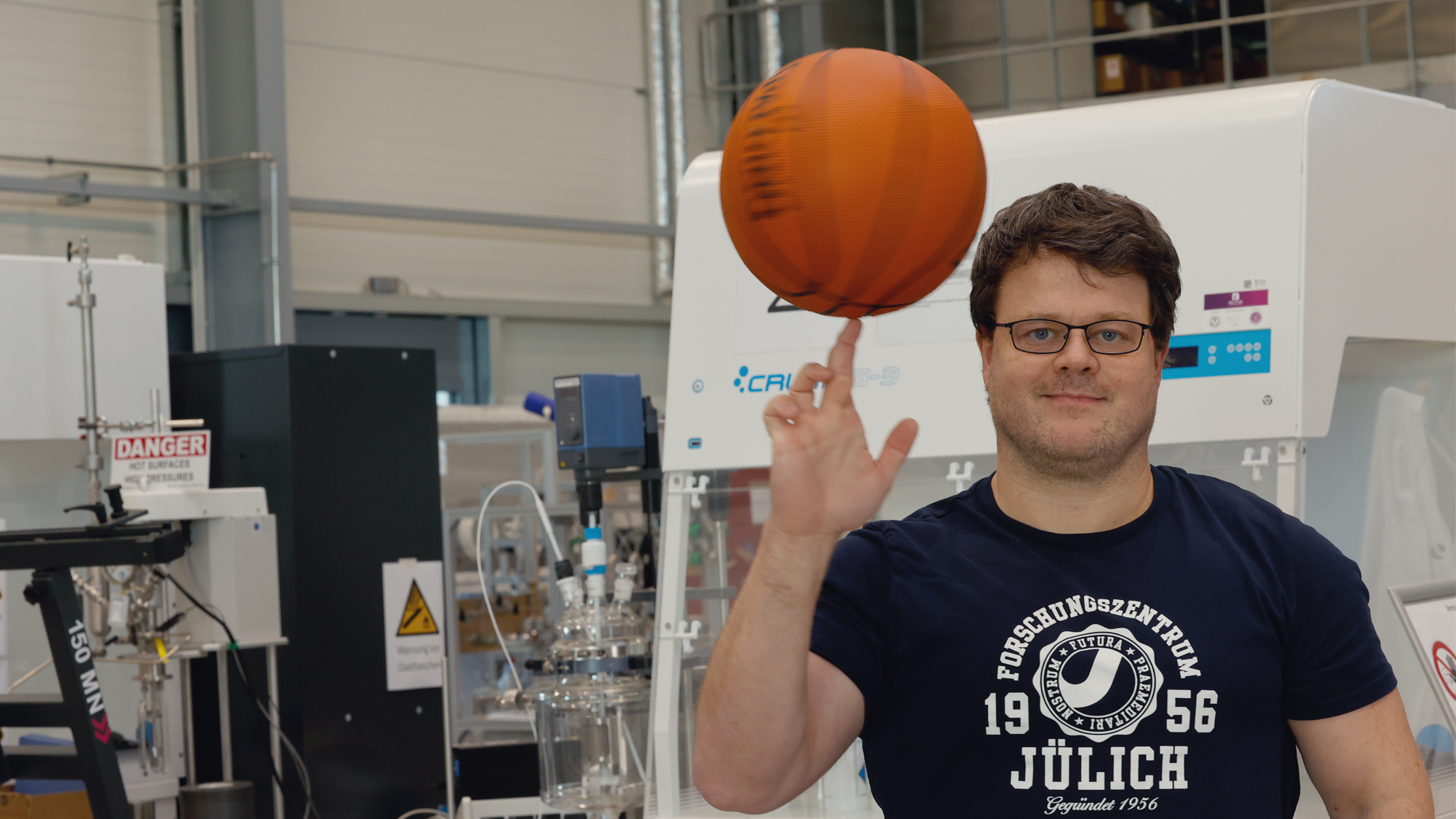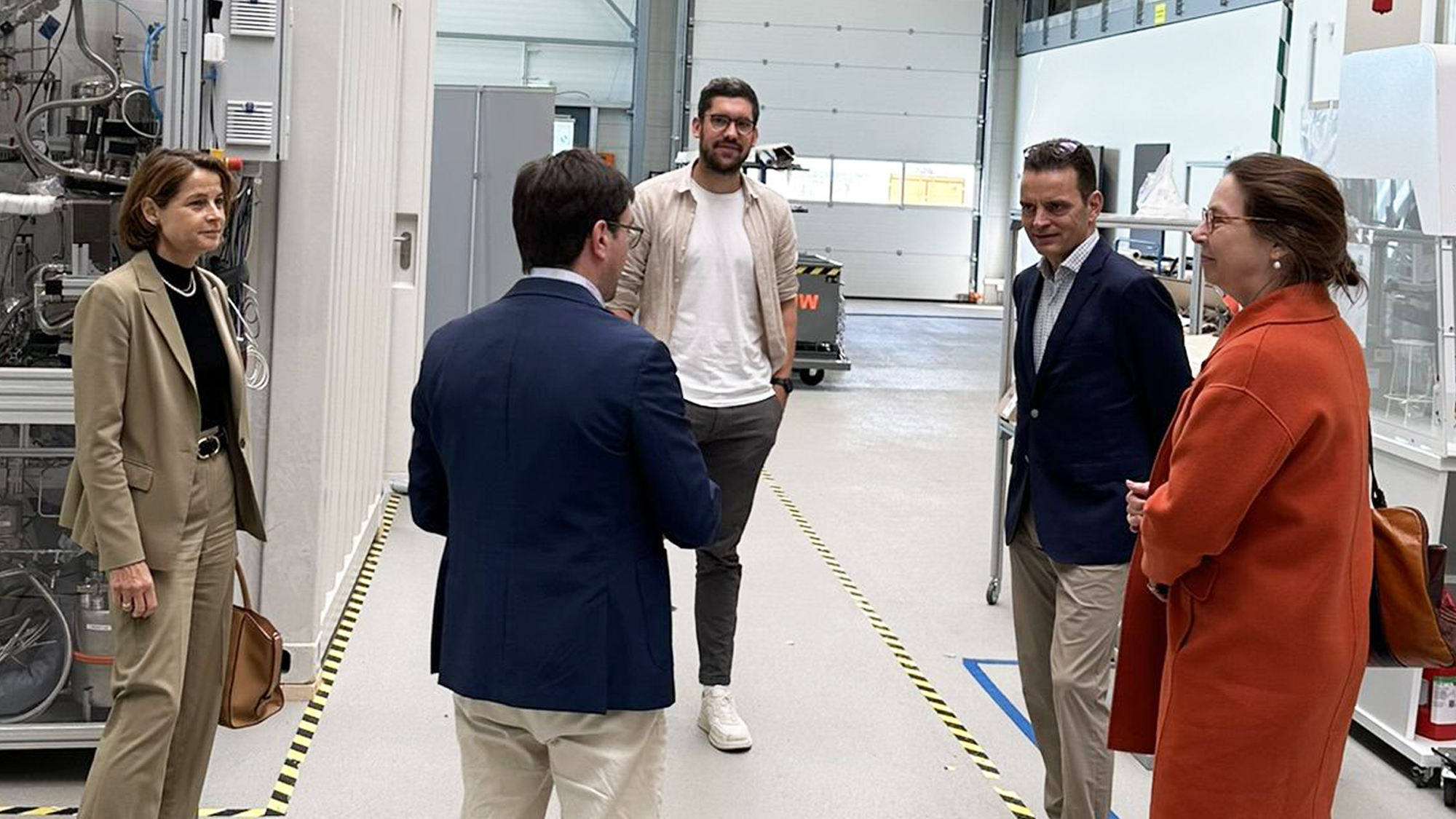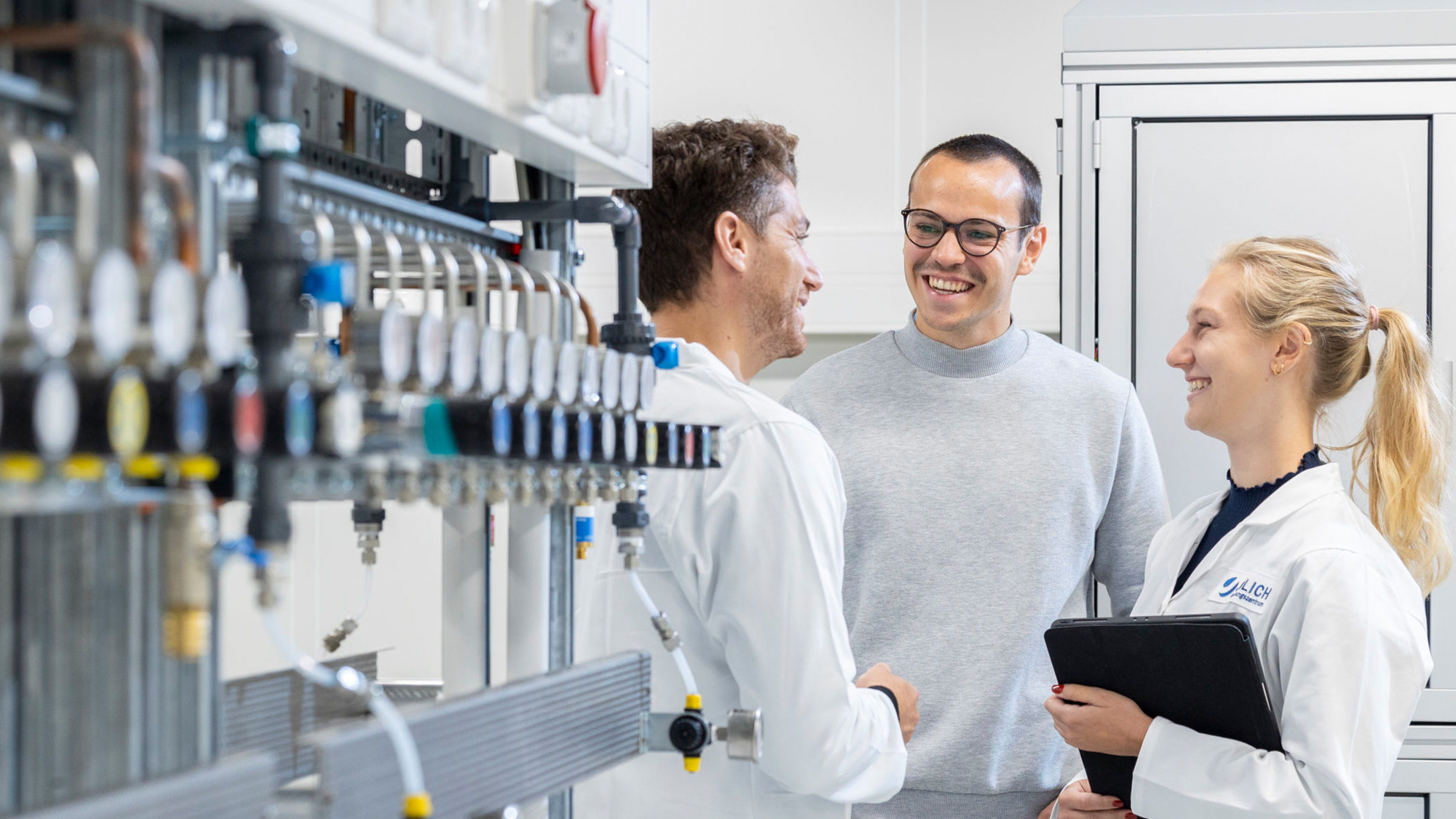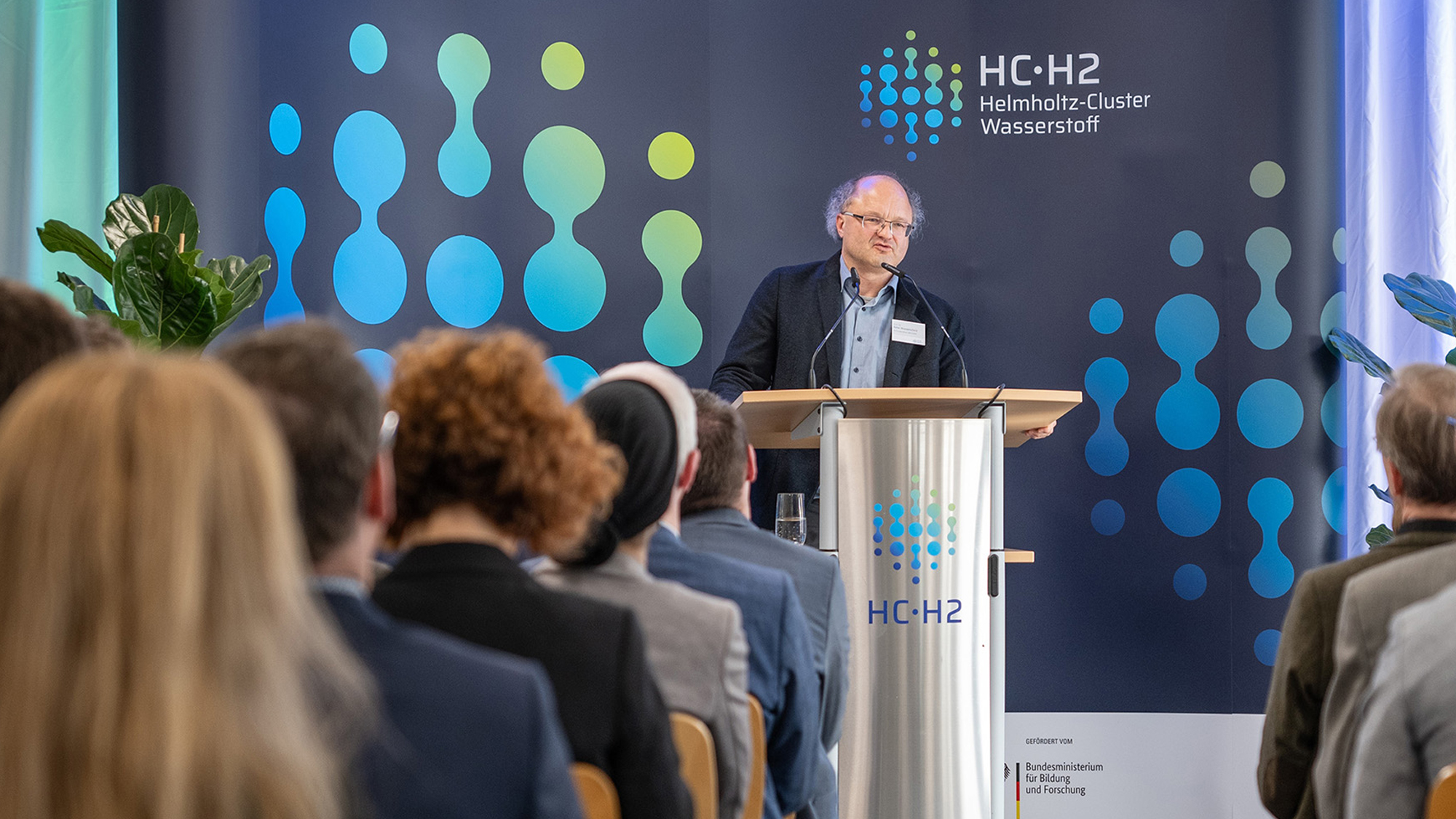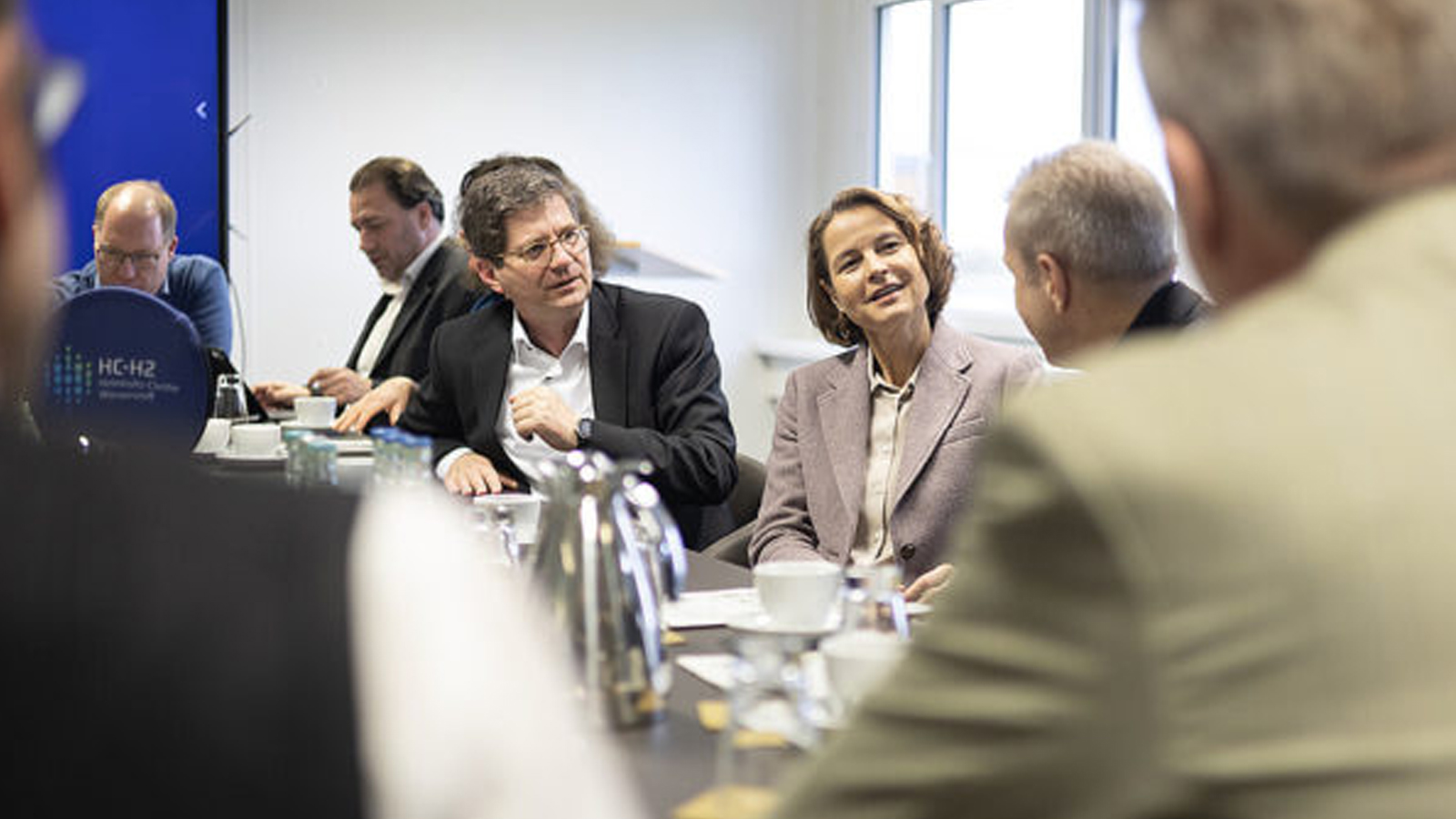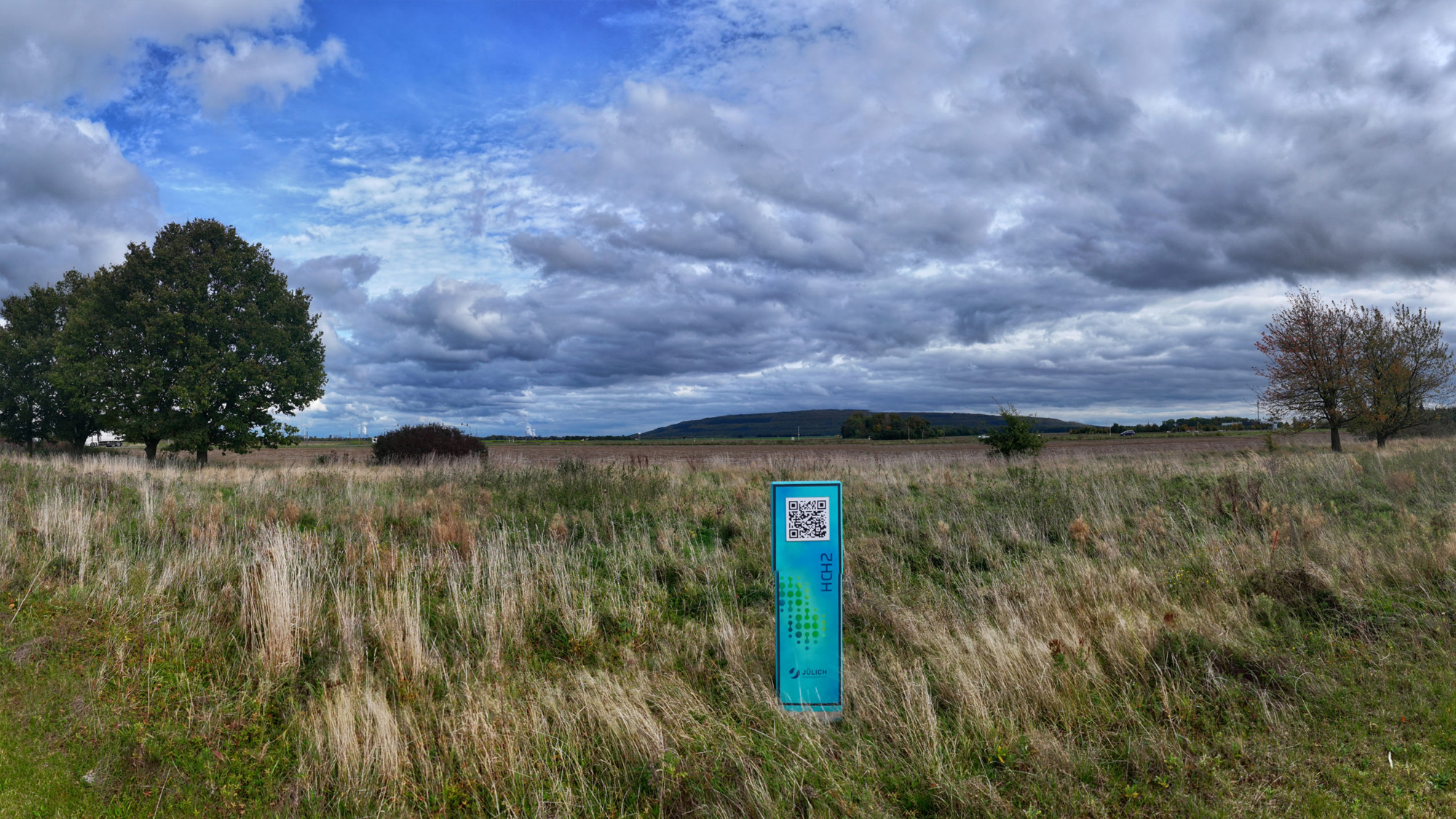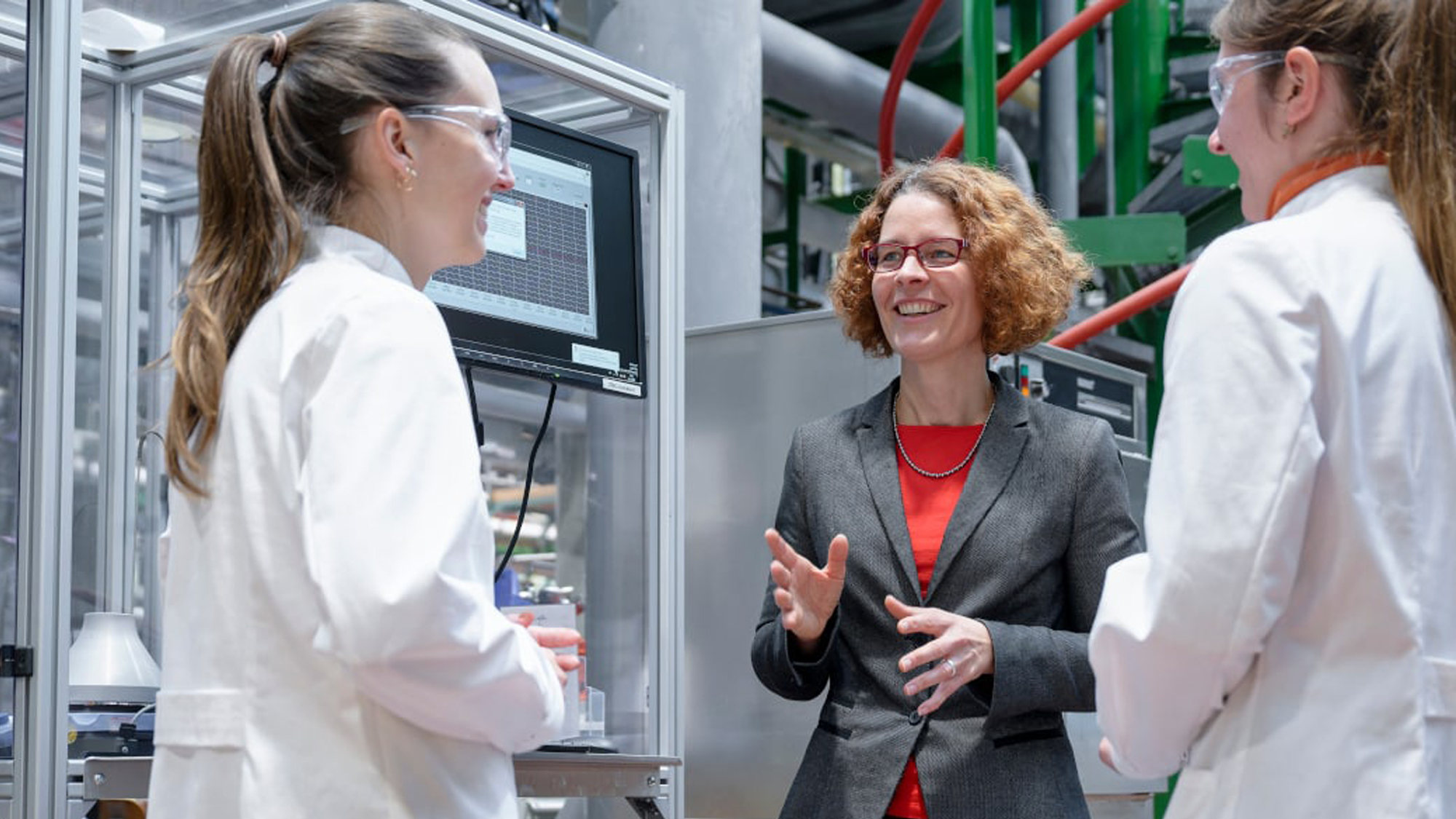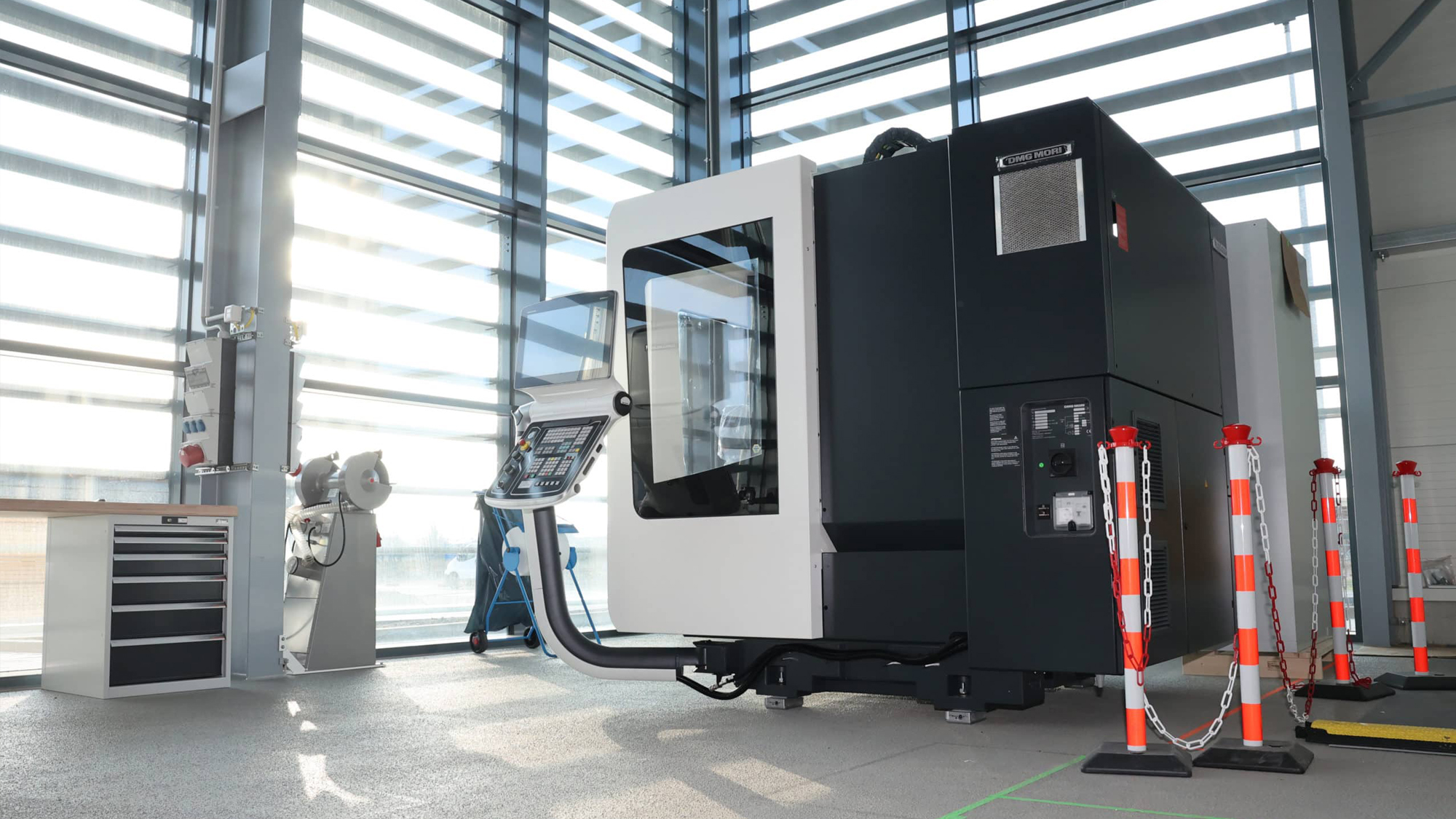Forschungszentrum Jülich establishes new Helmholtz cluster for the hydrogen economy
Jülich, September 3, 2021 – Forschungszentrum Jülich will establish a “Helmholtz Cluster for Sustainable and Infrastructure-Compatible Hydrogen Economy” (HC-H2) in the Rhenish mining area. The flagship project for research-driven new value creation will be funded by the German Federal Ministry of Education and Research with around € 860 million over a period of around 17 years as part of the Coal Regions Investment Act. North Rhine-Westphalia is also contributing state funds to the development of HC-H2. Armin Laschet, Minister President of North Rhine-Westphalia, and Thomas Rachel, Member of the German Bundestag and Parliamentary State Secretary of the Federal Ministry of Education and Research (BMBF), provided information about this project on September 2 in the immediate vicinity of the Inden open-cast mine. Thomas Rachel already handed over the first notice of federal funding in his capacity as state secretary.
The goal of HC-H2 is to give a powerful boost to the development of the Rhenish mining area and North Rhine-Westphalia more generally as an industrial hub, transforming it into a pioneering region for hydrogen technology that can be a model for Europe. To this end, HC-H2 will research and develop innovative technologies for the production, logistics, and use of green hydrogen as well as demonstrate them on a large scale. Research and development, the demonstration of technologies in real-world scenarios, and the integration of innovative technologies into existing infrastructures all form part of the HC-H2 project and help to create new added value in the region. This is expected to boost the status of the Rhenish mining area as an attractive location for energy companies, industrial estates, and entrepreneurs. This will in turn create new jobs for a wide variety of qualification profiles.
Focus on rapid implementation
Within HC-H2, research is focused on technologies that rely on existing or quick and easy-to-install infrastructure to store and transport hydrogen. This should help to rapidly implement the technologies on a large scale. One example is the existing natural gas grid, which can also be used to transport hydrogen. In addition, HC-H2 focuses on liquid and easily liquefiable hydrogen carriers that can be handled in a similar way to conventional fossil fuels. For example, hydrogen can be stored in the form of methanol or other alcohols, such as ammonia. The cluster will also focus on optimizing and scaling up LOHC technology. This involves binding hydrogen to liquid organic carriers. These carriers can be transported using tankers and stored in tank depots, for example. This means that the existing infrastructure for liquid fuels can continue to be used.
Innovation and demonstration
An H2 innovation centre will be established at the heart of HC-H2, where Forschungszentrum Jülich will bring its broad expertise with hydrogen to bear and connect with partners. At Forschungszentrum Jülich itself, a new institute for a sustainable hydrogen economy (INW) will be founded. A crucial element will be to bridge the gap between theory and practical application. An H2 demonstration region is being established with innovation-driven research at its core. Demonstration projects and facilities in various sizes are being planned and built across the entire Rhenish mining area. Their aim is to provide the necessary stimulus for the cluster to ensure that entrepreneurial efforts help create a sustainable hydrogen economy. The key function for HC-H2 overall is to connect the hydrogen activities across the region and bring in relevant partners from the worlds of research, industry, associations, and local authorities. The plan is for the bulk of HC-H2’s work to take place outside the Jülich campus, so that these activities can easily be brought together in the same space. Forschungszentrum Jülich plans to build the institute for the sustainable hydrogen economy in the town of Jülich’ Brainergy Park.
The establishment of this Helmholtz cluster was concluded last year as part of the agreement between the federal and state governments about the coal phase-out. HC-H2 is intended as a large-scale research and innovation cluster to help drive structural change in the Rhenish mining area and thus to help ensure that the coal power phase-out and the establishment of a new energy system can be economically viable while also protecting the environment, securing a reliable energy supply, and benefiting society.
Quotes about the project:
“The state government of North Rhine-Westphalia and the region have made it their joint mission during the course of the lignite phase-out to develop the Rhenish mining area into a modern industrial region to help meet the objectives in the European Green Deal. We want to make this a net-zero state that acts in society’s interests and has a sustainable economy. The hydrogen economy plays a key role in this transformation. That is why I am so pleased that the establishment of the Helmholtz Cluster for Sustainable and Infrastructure-Compatible Hydrogen Economy (HC-H2) in the Rhenish mining area will give us the chance to create a model region for pioneering hydrogen technologies that are made here in North Rhine-Westphalia.”
Armin Laschet, Minister-President of North Rhine-Westphalia
“Structural change in the Rhenish mining area is bringing about a profound transformation – away from coal and towards a forward-looking energy region. The funding for HC-H2 is a key component in developing the Rhenish mining area into a region for hydrogen technology that can be a model for all of Europe. That is why we are providing € 860 million in funding as part of the Act on Structural Change in Coal Mining Areas. This contribution from the Federal Ministry of Education and Research will go towards actively establishing a green hydrogen economy and a sustainable energy system for the future.”
Thomas Rachel MdB, Member of the German Bundestag and Parliamentary State Secretary of the Federal Ministry of Education and Research (BMBF)
“Forschungszentrum Jülich is committed to ensuring successful structural change in the Rhenish mining area. We have set ourselves the goal of advancing pioneering concepts for an innovative and sustainable hydrogen economy. The “Helmholtz Cluster for a Sustainable and Infrastructure-Compatible Hydrogen Economy” will form a central hub in this respect, with its emphasis on hydrogen logistics using chemical hydrogen carriers. Together with a network of cooperation partners, the cluster will cover a wide variety of value chains that are not limited to specific technologies, ranging from hydrogen generation to cross-sector hydrogen usage. We aim to accelerate the practical application of the research through close connections between research and demonstration projects. This will help develop HC-H2 into a flagship project for driving innovation that can also lead the way for other regions.”
Prof. Wolfgang Marquardt, Chairman of the Board of Directors of Forschungszentrum Jülich
The copyright for the images used on this website is held by Forschungszentrum Jülich, aligator kommunikation GmbH and
stock.adobe.com.
